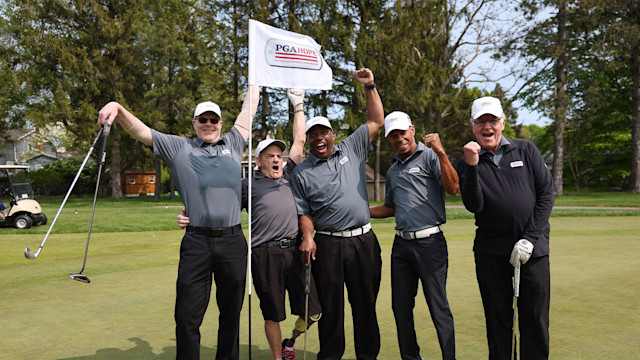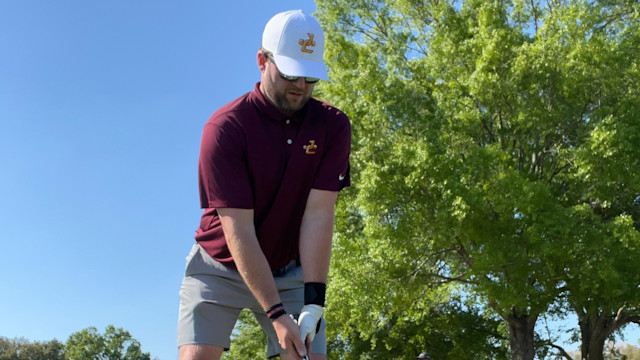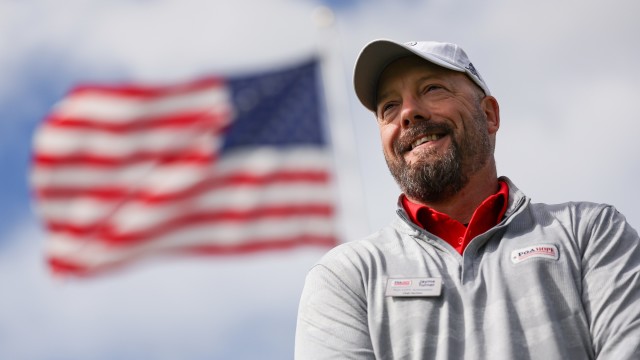Game Changers
For Army Veteran Ramsey Raher, Golf Has Always Been a Saving Grace
By Jay Coffin
Published on
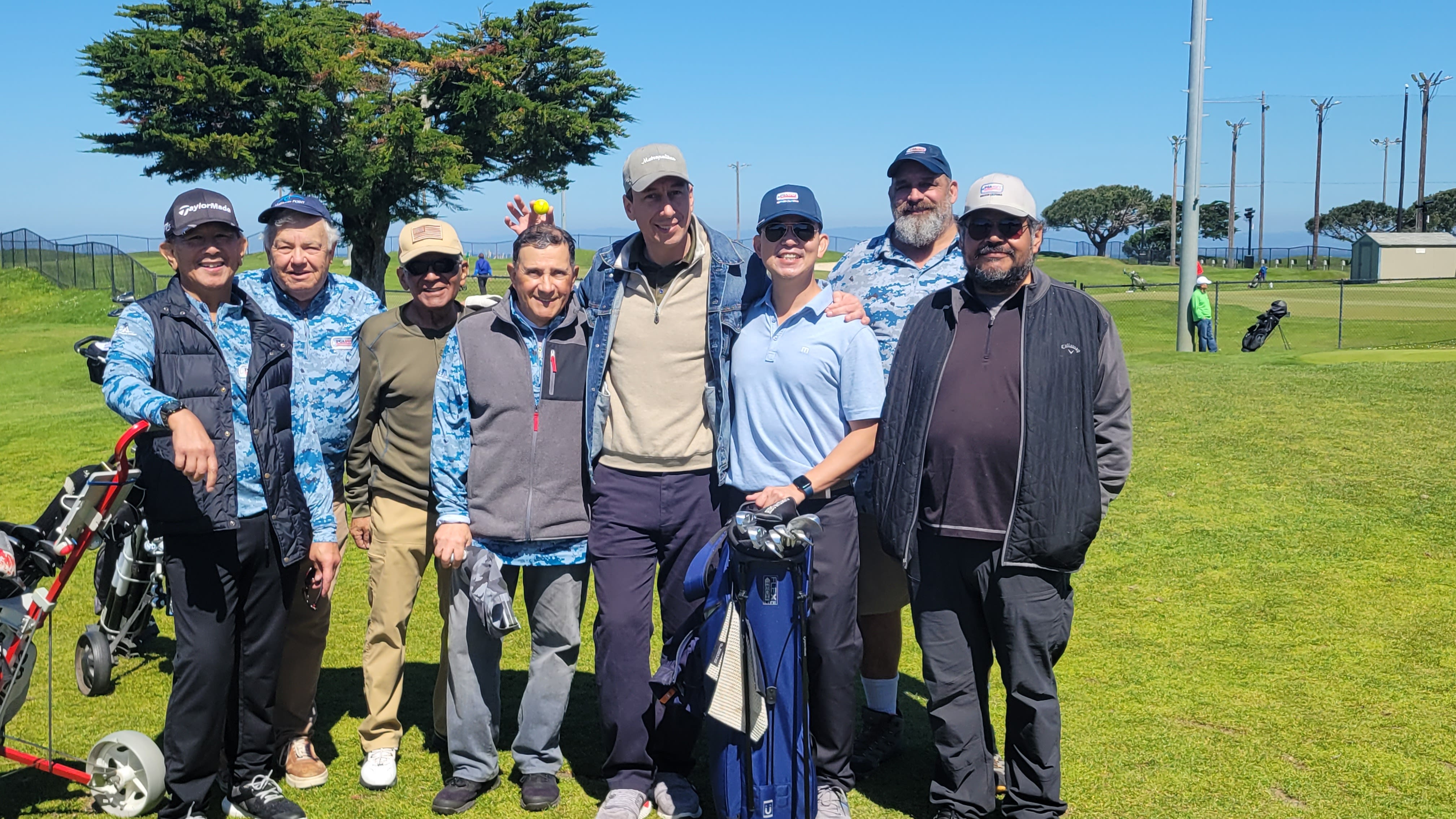
Ramsey Raher always believed he’d have a career in golf. He just didn’t know the game would help save his life.
The Army Veteran served six years with the 4th Infantry Brigade Combat Team (Airborne), 25th Infantry Division, was wounded twice within a seven-month span during Operation Iraqi Freedom, received two purple hearts, and, in his words, “lived to tell it.”
Now, at age 47, he’s an Assistant Golf Professional at Presidio Golf Course in San Francisco, helps runs three separate PGA HOPE programs and has been tapped to captain the Northern California squad for the 2024 PGA HOPE Secretary’s Cup, held May 13 at The University of Louisville Golf Club in Kentucky. The event celebrates the PGA HOPE (Helping Our Patriots Everywhere) program by providing a memorable experience for Veterans and the PGA of America Golf Professionals who work tirelessly to impact Veterans lives.
Raher is one of the few in the country who fits both of those bills.
“Golf’s always been a saving grace, it’s always been in the blood, it’s always been a passion," Raher says. "It’s always been something that I knew I would fall back on."
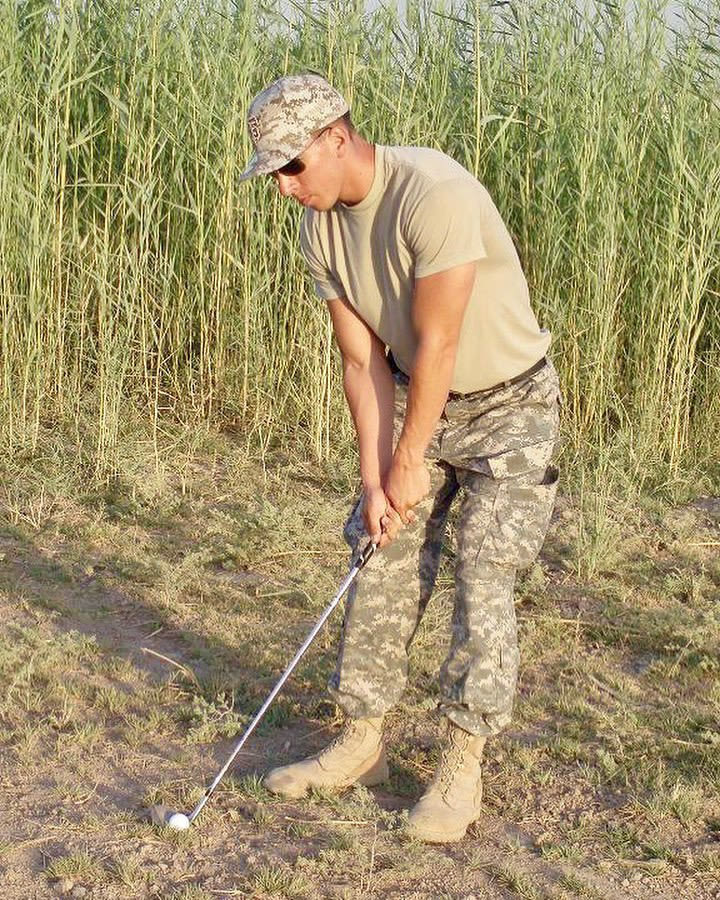
The San Francisco native grew up next to Golden Gate Park, the son of a father (Thomas) who was a cable car conductor and a mother (Christine) who worked for the University of San Francisco in its MBA program. She still attends church every week, volunteers at various places and enjoys looking after her five grandchildren.
Raher played several sports as a youth but especially enjoyed basketball. He’d play each Tuesday evening at St. Agnes Catholic Church then go to the public courts all weekend to find a game. He also played golf. Raher’s great uncle was a successful amateur player in Iowa and his father competed some on the club level, often bringing Ramsey along to caddie. During summers, he’d catch a bus down to Harding Park, hit balls all day, then return by dark.
“Being Irish Americans, there’s going to be a Guinness around somewhere,” Raher says. “It wasn’t misunderstood, or out of place, that was the norm. There was the 19th hole. So when I played as a junior there was always alcohol involved. I never had the ability to play the game outside of libations.”
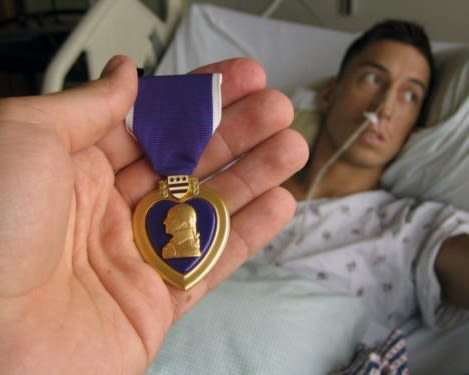
After high school, Raher attended the University of San Francisco for a bit then later helped run a successful painting company with his uncle. Years later, at age 27, he was sitting at a bar, watching television and noticed that there was still so much unrest in the Middle East four years after the September 11th terrorist attacks.
“Why are we still dealing with this,” Raher remembers wondering. “That was the catalyst. Let me go sign up right now, go down to the recruiter.
“Ramsey Raher was going to go make a determining effort on the war on terror and not let it get on American soil. That’s what I did.”
The process moved quickly. Raher went straight into an artillery unit and then parlayed that into airborne school. He was 28 when he joined the Army, turned 29 while in basic training – where he was older than all his drill sergeants – and shipped off to Iraq in October 2006. He turned 30 a week later.
Explosions were everywhere from the first hour Raher stepped on land. He and his brothers patrolled the area all day, all night on rotations to make sure that the mission was as safe as it could be. Two months later, on December 20, Raher was wounded and took shrapnel to the chest. He sat out for only a week and was back on duty right after Christmas.
“We continued with the combat and the firefights and the bombs and everything you can imagine with war,” he says.
On the night of July 31, 2007, Raher was injured again and two members of his platoon lost their lives. A rocket hit Spc. Daniel Reyes and Sgt. Bradley Marshall. Raher was 15 feet to the left.
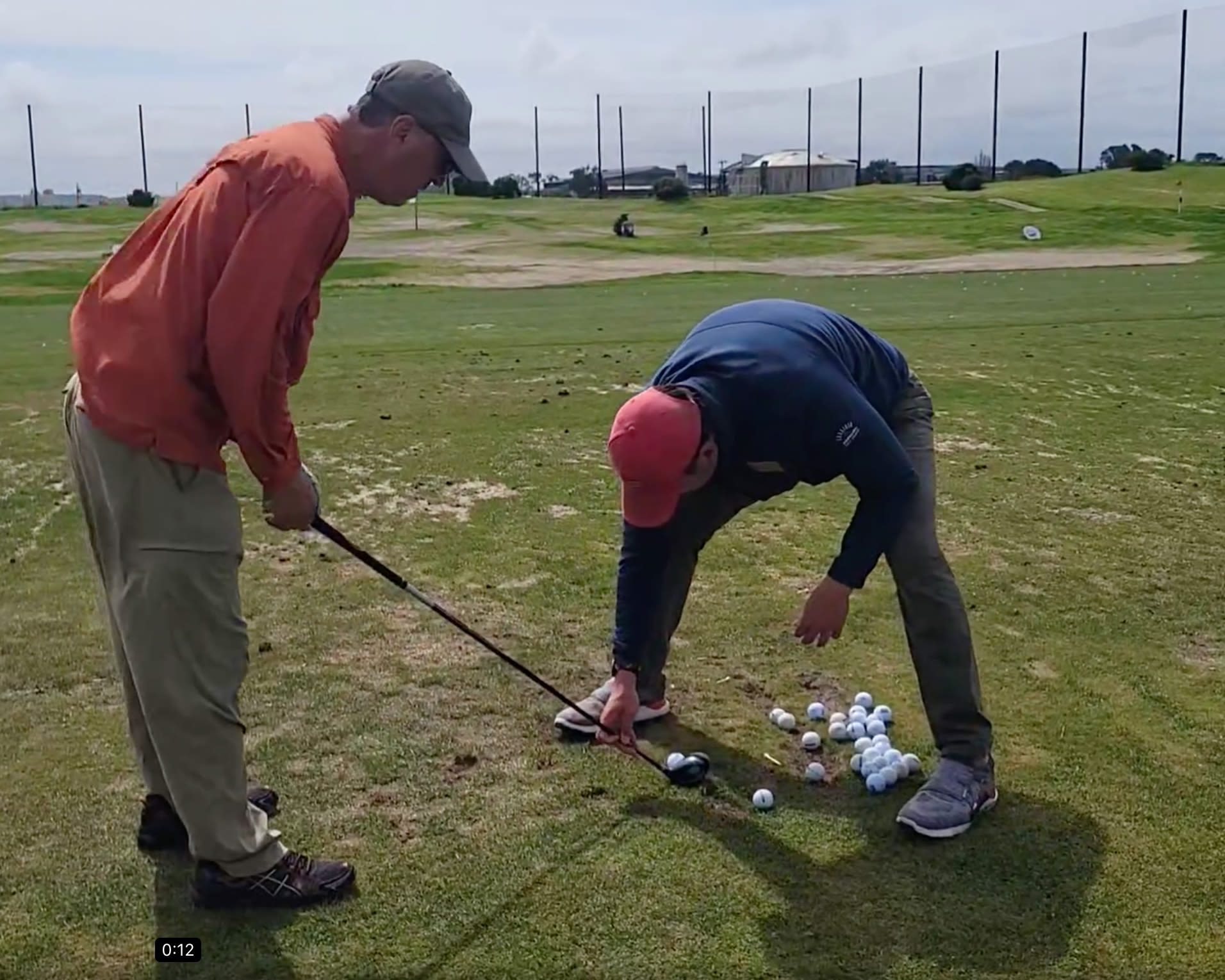
“These were each two men who were loving fathers and devoted husbands, deployed to war, and I could never understand how they died that night, and I survived,” Raher wrote later.
Raher still often wonders exactly what happened that fateful night. He woke up on a Black Hawk helicopter vomiting on his way to Baghdad. He had a collapsed lung and severed intestines. His mangled body was eventually shipped back to Germany for more surgeries. After a quick stop at Walter Reed Medical Center he was reunited with his family in Seattle.
“My dad stood by my side and helped me breathe,” Raher remembers. “I finally found the strength to live.”
Being so physically fit, Raher believes, is what ultimately saved his life and allowed him to recover fairly quickly. He was in a recovery unit where soldiers were either going to get discharged, remain in recovery or become well enough to return to active duty. He began to run, get his body in shape and started to perform at a high standard. He was told he was well enough to return to duty if he wished.
“Sign me up for three more years,” Raher said. “Let’s get at it.”
Raher earned his certification in radio technology and satellite training because he didn’t want to be on the front lines this time. But a Master Sgt. at Ft. Bragg knew he had a well-trained paratrooper in his midst and, as Raher was leaving for the weekend one Friday night, he was told, “your orders just got changed, you’re going to the line.”
This time, thankfully, was less hectic. Raher was sent to Haiti for a stretch, then to Afghanistan for three months before returning on July 31, 2010, the three-year anniversary of when he was severely wounded the second time in Iraq.
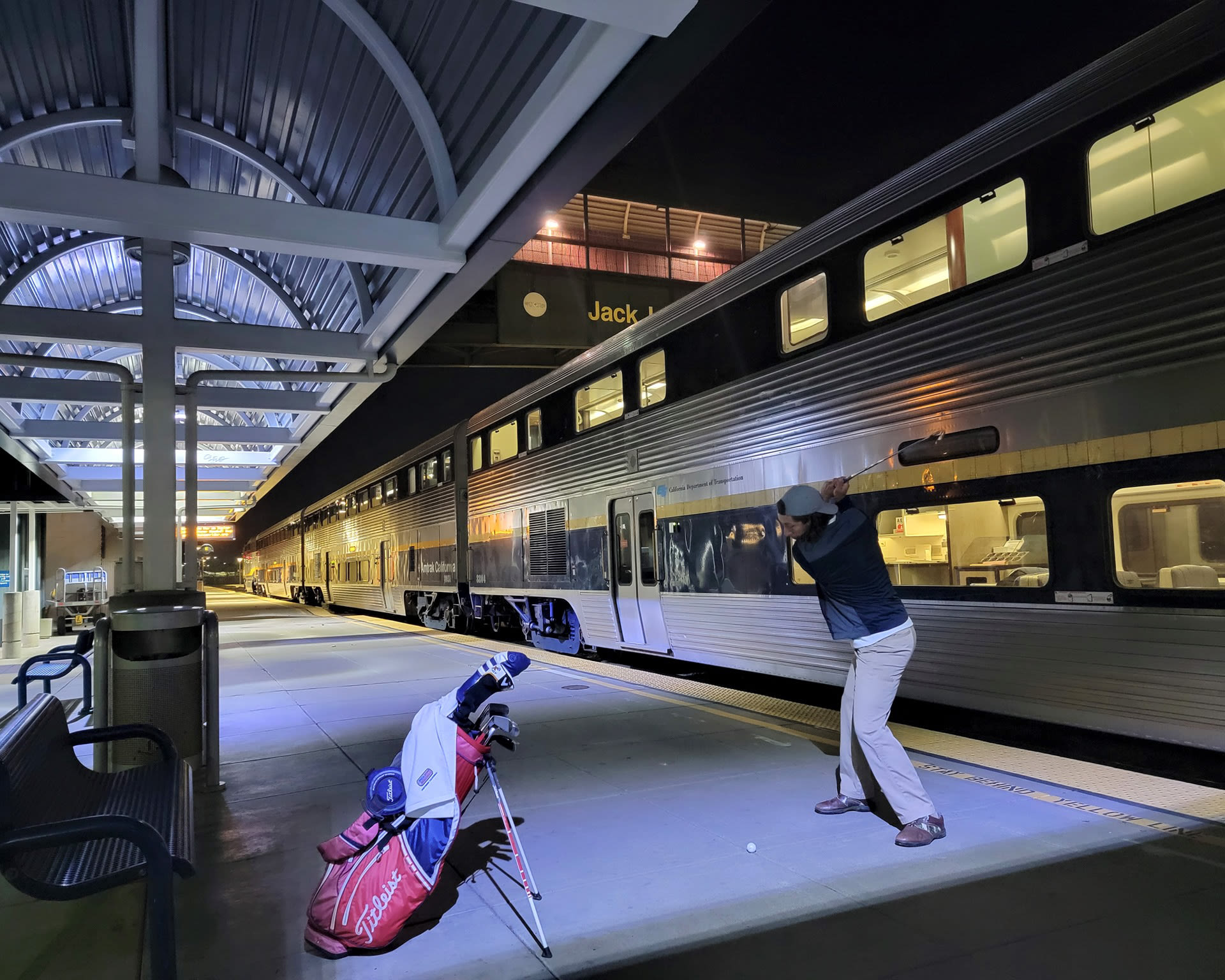
“But this time it wasn’t with an IV and 10 tubes and needles sticking out of me,” he says.
A year later, on July 13, 2011, Raher was honorably discharged. He was still drinking heavily and needed to get out and try to get sober.
It was also time to focus on golf. Raher had hit balls more often than you’d think during his service. There was a driving range in Afghanistan where he’d hit as many balls as he could during his free time. He also played golf when he was stationed in North Carolina and Alaska.
Raher attended the Golf Academy of America in Carlsbad, California and earned an associate degree in Golf Course Management in 20 months. He then used that to get jobs at The Crosby Club in San Diego and Half Moon Bay Golf Links south of San Francisco.
Wanting to find work that was for more regular hours and to spend time with son Rowan (now age 9), Raher left the golf business for a stint before he received a phone call that would send him on a new path and help get him sober.
In August 2020, a good friend, San Francisco police officer Pat Kennedy, called Raher and said that he was watching television coverage of the PGA Championship at TPC Harding Park. He saw a commercial for PGA HOPE and told Raher that he thought it’d be a good fit.
Ten days later, Raher took the leap.
“My involvement with PGA HOPE directly coincides with my sobriety,” he says. “Since August 19, 2020, when I decided I would be involved with HOPE, I also decided that I was going to let go of alcohol, and that’s continued up until this point.”
Now Raher helps run three PGA HOPE programs a week – Monday at Metropolitan Golf Links, Tuesday at Mariners Point and Thursday at Presidio – and is an Assistant Golf Professional at Presidio, where he works the other four days of the week.
Since Raher is completing Level 1 PGA of America Professional Golf Management Program, PGA HOPE Lead Instructor and Trainer Bob Epperly suggested earlier this year that Raher should consider being the captain of the Northern California PGA Secretary’s Cup squad of Brad Rossmiller, Jamie Trahan, Nelson Ordonez and Patrick Minnifield.
“When he came to us, he was hurting,” Epperly recalls. “Once he got into the program you could see that this was home for him. Not only because he loved golf but because he was with other Veterans. He fit in just perfectly.
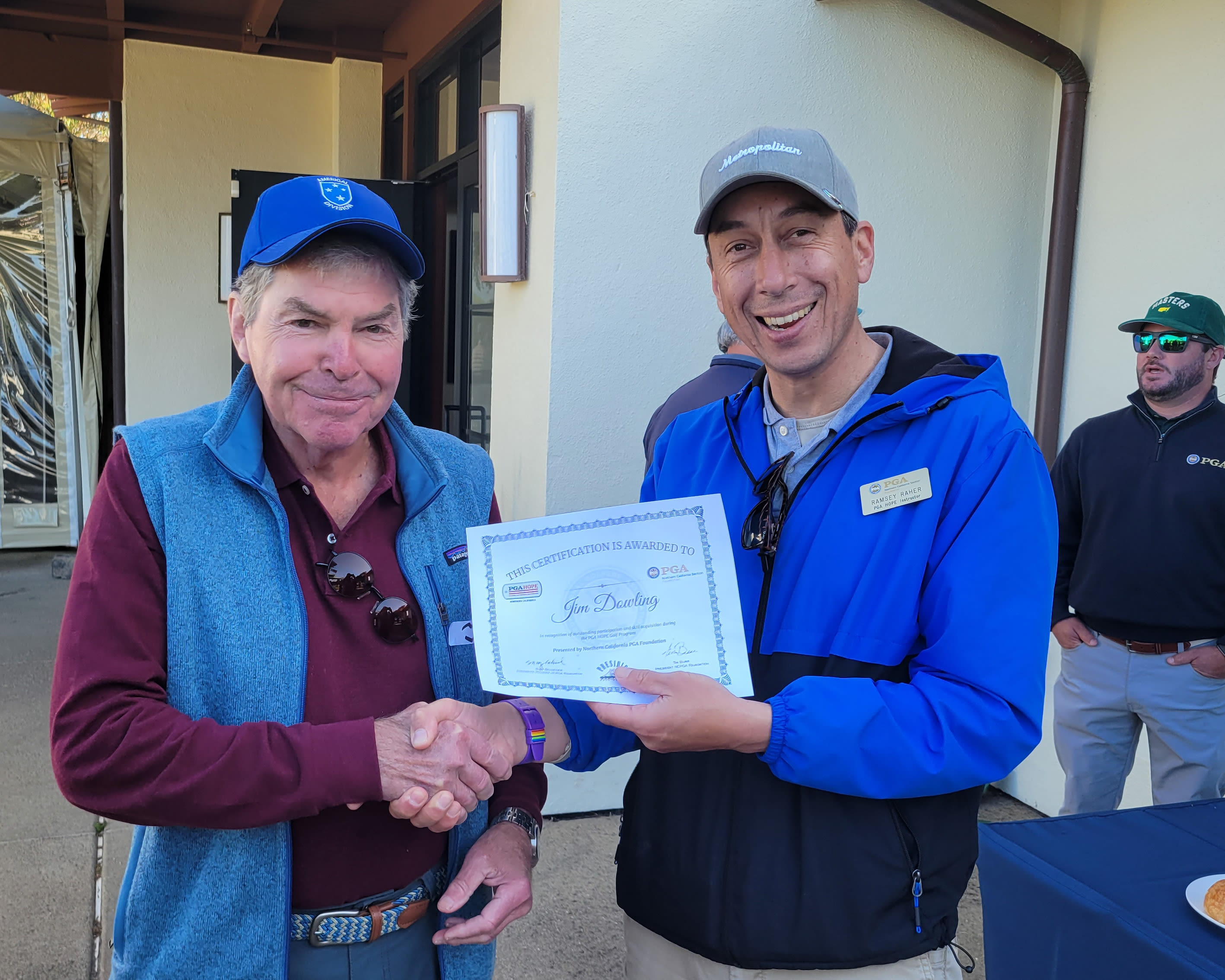
“He’s gone from being on the edge, to now being part of the PGA of America and being a well-known, well-respected man. He’s a different guy. We feel emotional about him.”
Says Raher: “When I give instructions to Veterans who haven’t ever had an interest, or have only seen golf on TV, and in a matter of six weeks they’ve somewhat mastered the game, they reach out and thank you for your time and service and for giving them this gift. It’s really a remarkable thing that I’ve gotten involved with.”
And everyone involved, like Epperly and Suzy Schneider, believe they’ve found a remarkable Veteran who is exactly the type of person designed to flourish within PGA HOPE.
“We just knew that golf and PGA HOPE was coming to him at the right time,” said Schneider, Programs Manager at the Northern California PGA Section and Northern California PGA REACH Foundation. “Once we saw his passion for the game and realized how much skill he had, we saw how much he needed the game.
“So this year we said, ‘let’s elevate him to become a captain so that he can lead some of the newbies and mentor and nurture.’ He is our pride and joy.”
